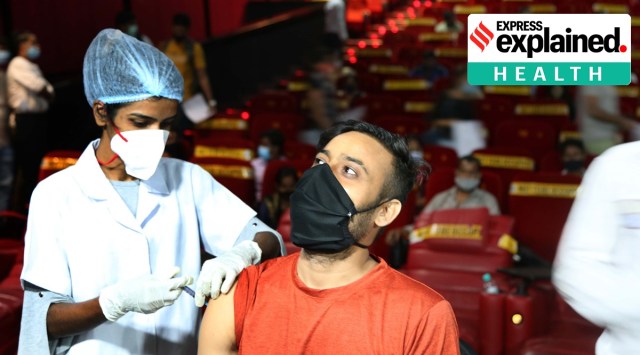Kaunain Sheriff M is an award-winning investigative journalist and the National Health Editor at The Indian Express. He is the author of Johnson & Johnson Files: The Indian Secrets of a Global Giant, an investigation into one of the world’s most powerful pharmaceutical companies. With over a decade of experience, Kaunain brings deep expertise in three areas of investigative journalism: law, health, and data. He currently leads The Indian Express newsroom’s in-depth coverage of health. His work has earned some of the most prestigious honours in journalism, including the Ramnath Goenka Award for Excellence in Journalism, the Society of Publishers in Asia (SOPA) Award, and the Mumbai Press Club’s Red Ink Award. Kaunain has also collaborated on major global investigations. He was part of the Implant Files project with the International Consortium of Investigative Journalists (ICIJ), which exposed malpractices in the medical device industry across the world. He also contributed to an international investigation that uncovered how a Chinese big-data firm was monitoring thousands of prominent Indian individuals and institutions in real time. Over the years, he has reported on several high-profile criminal trials, including the Hashimpura massacre, the 2G spectrum scam, and the coal block allocation case. Within The Indian Express, he has been honoured three times with the Indian Express Excellence Award for his investigations—on the anti-Sikh riots, the Vyapam exam scam, and the abuse of the National Security Act in Uttar Pradesh. ... Read More
Explained: What latest govt data reveals on Covid-19 vaccine effectiveness, preventing mortality
Coronavirus vaccination: 58 per cent of the eligible adult population in India have received the first dose, and 18 per cent is fully vaccinated.
 A man gets inoculated with a dose of the Covishield vaccine at a temporary vaccination centre set up inside a multiplex cinema hall complex in Mumbai. (Express Photo: Ganesh Shirsekar)
A man gets inoculated with a dose of the Covishield vaccine at a temporary vaccination centre set up inside a multiplex cinema hall complex in Mumbai. (Express Photo: Ganesh Shirsekar)The Union Health Ministry has released the data of the national vaccination drive that showed the Covid-19 vaccines being administered in the country offer near-total protection against serious disease and death.
What does the data reveal?
On Thursday, ICMR DG Dr Balram Bhargava released the preliminary data of the soon-to-be-launched vaccine tracker that has been synergised using the Cowin platform and the national Covid-19 testing database of the ICMR.
The real-time data of the Covid-19 vaccination between April 18 and August 15, showed that the Covid-19 vaccine effectiveness in preventing mortality after the first dose stood at 96.6 per cent; and it further enhanced after the second dose – and stood at an impressive 97.5 per cent.
What does a high percentage of effectiveness in preventing mortality indicate?
First, the data reaffirms that the eligible adult population, especially the vulnerable population, as well those with associated co-morbidities like diabetes, hypertension and cardiovascular disease should, on priority, get themselves vaccinated. The data is clear evidence that across all age groups – both Covishield and Covaxin – protect persons from both severe disease and death. Therefore, to significantly reduce the risk of death associated with the Covid-19, it is imperative for the entire adult population to get themselves vaccinated.
What are the public health implications of the high effectiveness of vaccines in preventing deaths?
From a public health perspective, the data clearly shows that higher vaccination coverage at the district level would mean significantly lesser hospitalisations. This would in turn ensure that the hospitals are not overwhelmed and that those with severe disease will be able to receive quality treatment.
As seen during the peak of ferocious second wave, as a significantly high percentage of the population was unvaccinated, the hospital infrastructure was overwhelmed.
Now, since 58 per cent of the eligible adult population in the country have received the first dose, and 18 per cent is fully vaccinated — and with vaccines offering high protection in preventing mortality — it is very likely that hospitals will not be overburdened with cases of severe infections at the levels recorded during the second wave, especially in districts with high vaccination coverage.
Does the data mean that vaccines are also able to prevent transmission?
No. Thursday’s data released by the health ministry only related Covid-19 vaccine effectiveness in preventing mortality. The data does not show how many persons were infected post-vaccination.
Significantly, on Thursday, Dr Bhargava flagged that the Covid-19 vaccines are disease-modifying vaccines and not disease-preventing vaccines. So breakthrough infections will occur even after vaccination. That is why the government continues to recommend that strict use of masks and Covid-19 appropriate behaviour to break the chain of transmission.
Newsletter | Click to get the day’s best explainers in your inbox



- 01
- 02






































